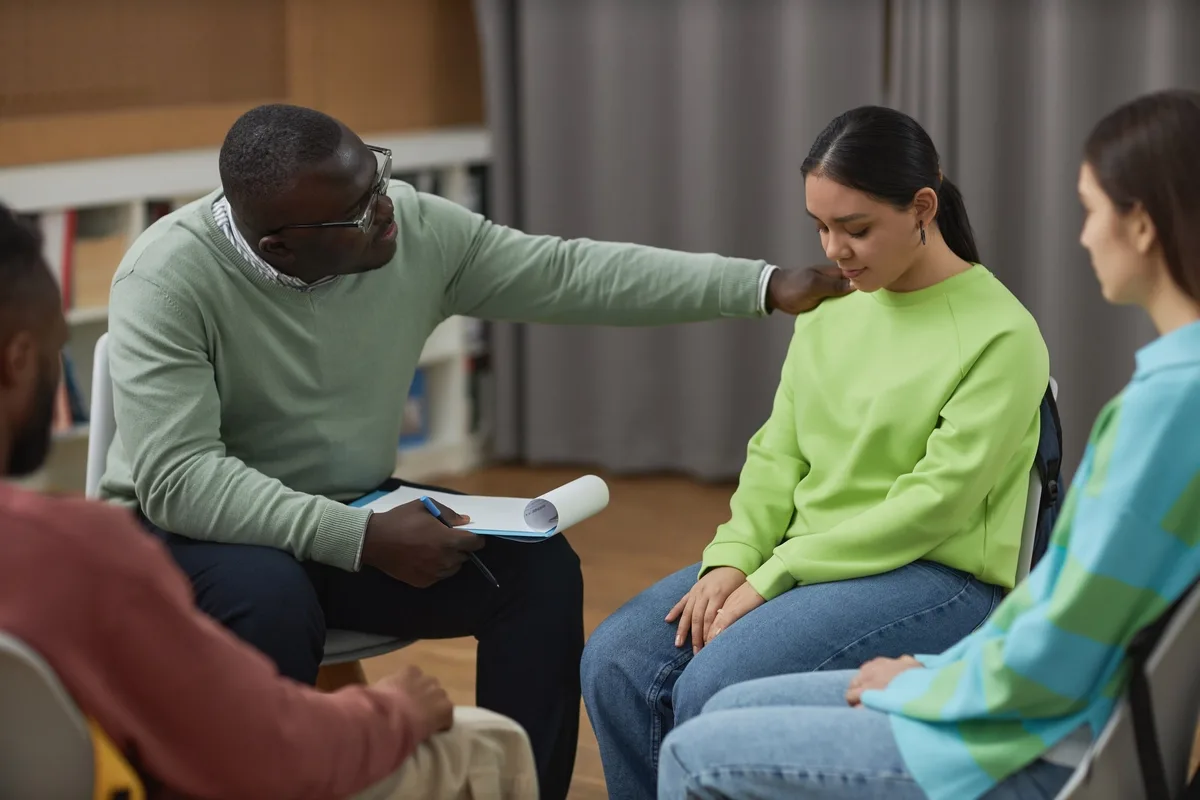24/7 Helpline:
(866) 899-221924/7 Helpline:
(866) 899-2219
Learn more about Group Therapy centers in Macon County

Other Insurance Options

Covered California

CareSource

Aetna

Providence

Excellus

Oxford

WellCare Health Plans

Absolute Total Care

MVP Healthcare

Anthem

Medical Mutual of Ohio

AllWell

Multiplan

Health Net
Beacon

Coventry Health Care

GEHA

Optima

MHNNet Behavioral Health

BlueCross





















































